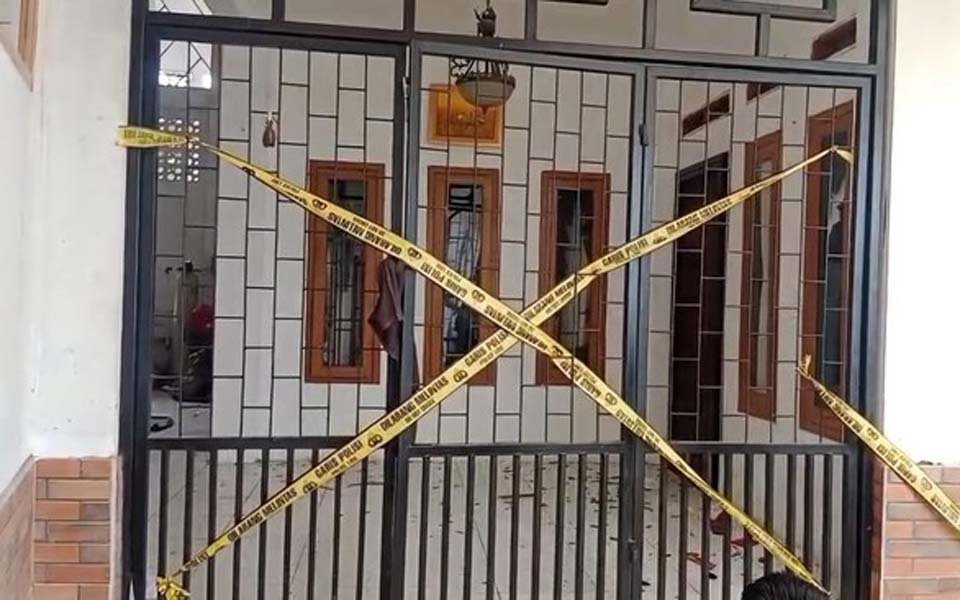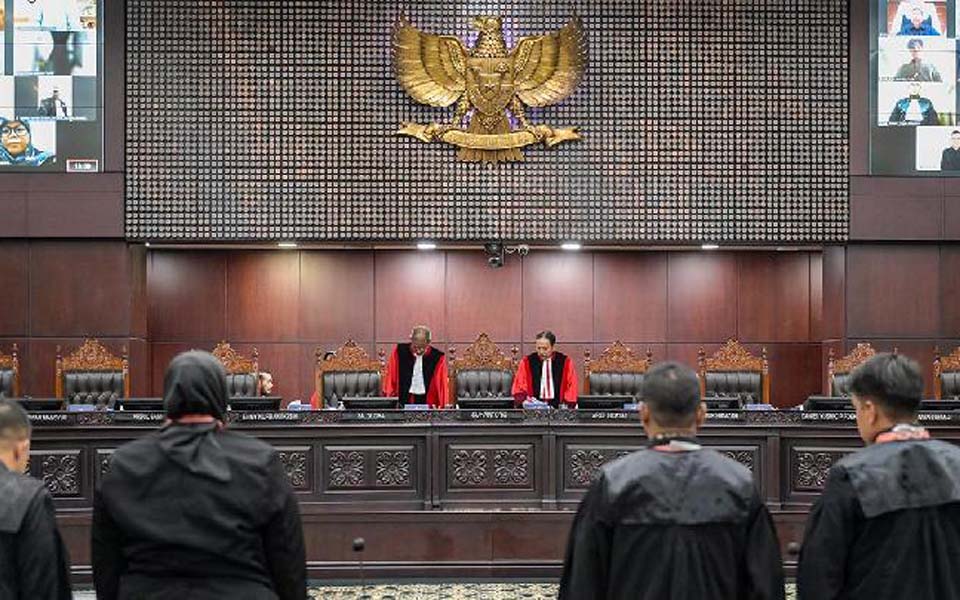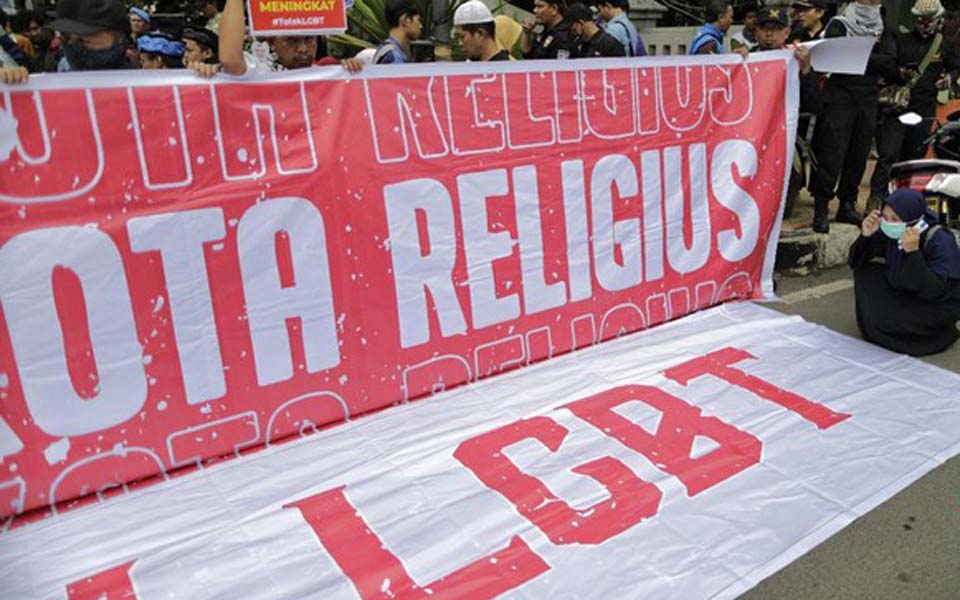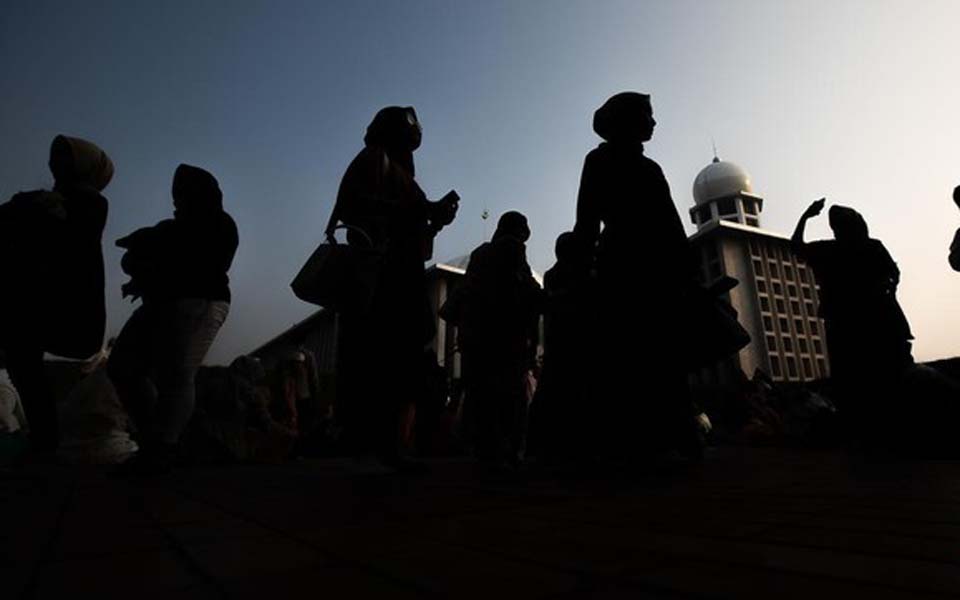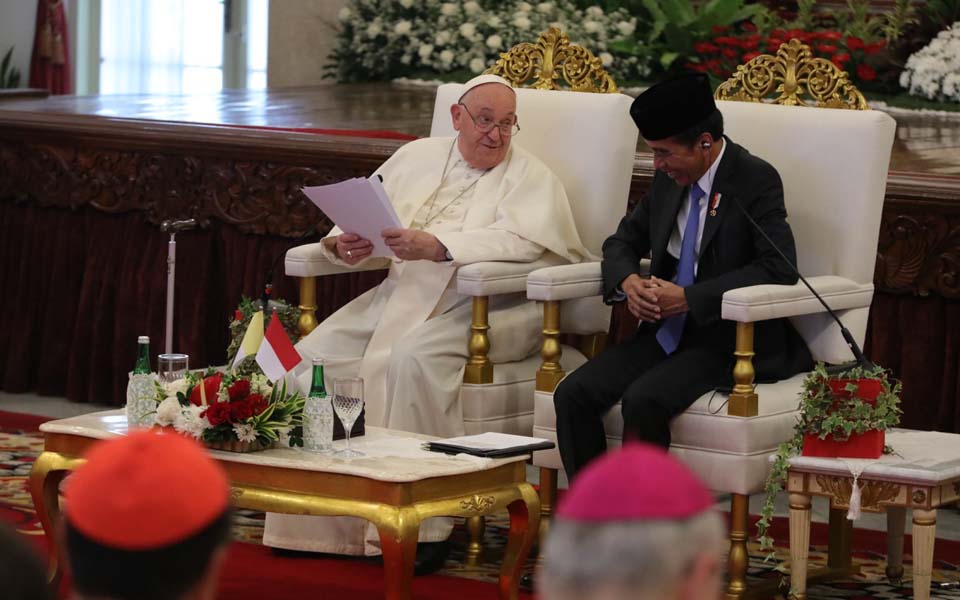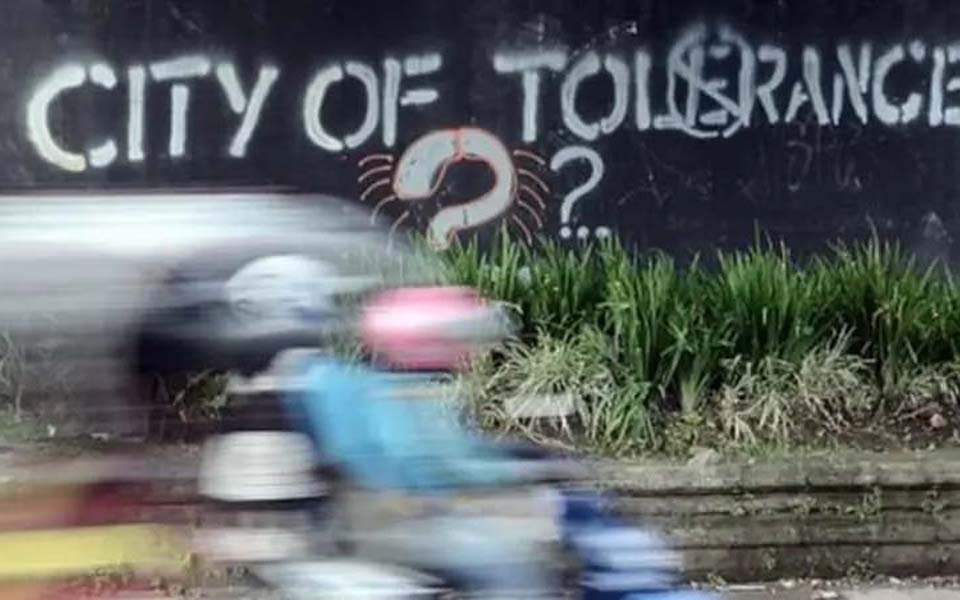Jakarta – Indonesian Human Rights Watch (Imparsial) says that violations against freedom of religion and belief (KBB) occur because the law is bias towards the majority. Imparsial researcher Amelia says that several regulations guarantee the right to freedom of religion and worship but others threaten this freedom.
Amelia also highlighted government policies related to religious freedom which are still bias towards the majority and tend to accommodate the wishes of the majority religious group and ignore human rights principles and normative standards. Imparsial found 31 cases of violations against religious freedom between November 2018 and November 2019.
“It is not infrequent that policies made by the government are ‘majority’ bias, accommodating the wishes of religious groups”, she said during a press conference by Imparsial in Jakarta on November 17.
A number of regulations are seen as restricting religious freedom including Presidential Decree Number 1/1965 on religious blasphemy.
In addition to this there is the 2008 joint ministerial decree on the Ahmadiyah religious sect, the 2006 joint ministerial decree on houses of worship, several bylaws and decrees by governors and or regents and joint decrees which limit religious freedom for minority groups.
“Several of these regulations in many reports have been proven to have failed to guarantee the right to religious freedom and are even used by intolerant groups to legitimise intolerant practices against minority groups”, she continued.
This has been proven by continued acts of intolerance and violations of religious freedom, such as closing houses of worship, breaking up religious activities, deviations and spreading hatred in the name of religion and regulations that require the wearing of certain religious clothing in public schools.
According to Imparsial’s records, over the last year there were 31 cases of intolerance or violations against freedom of religion and belief which were spread across 15 provinces in Indonesia.
“This has impacted upon parts of society such as minority religious groups who are unable to exercise their freedom of religion in safety. Moreover there have been more than a few deaths as a consequence of acts violating KBB and intolerance”, said Imparsial.
Also speaking at the same event, Indonesian Legal Roundtable (ILR) researcher Erwin Natosmal Oemar was critical of an incident which took place in Mangir Lor hamlet, Mangir Village, Bantul, in the Central Java province of Yogyakarta.
At the time, the residents of the Mangir Lor broke up a ritual homage to the ancestral figure Ki Ageng Mangir. The Odalan ritual or commemoration of Maha Lingga Padma Buana was being held at the private home of a resident in the village. The event was broken up by local people on the grounds that they did not have a permit.
According to Oemar, this incident represents an accumulation of acts of intolerance in the Central Java province of Yogyakarta where law enforcement has been unclear. He also gave as an example the torching of the Saman Sewon Indonesian Baptist Church in Bantul in 2015.
“If in the context of Yogyakarta this is an issue of ineffective law enforcement so it has the potential to be repeated”, said Oemar.
The government’s attitude towards intolerance, said Oemar, should be focused on two issues, namely regulations and political expression.
According to Oemar, there is a conflicting policy dualism in Yogyakarta between the regional and central government. He said that decentralisation has become the source of regional government policies which conflict with the central government. He also cited differences in political views between regional and the central government. (ryn/eks)
[Translated by James Balowski. The original title of the article was “Imparsial: Hukum Bias Mayoritas, Intoleransi Dapat Legitimasi”.]






